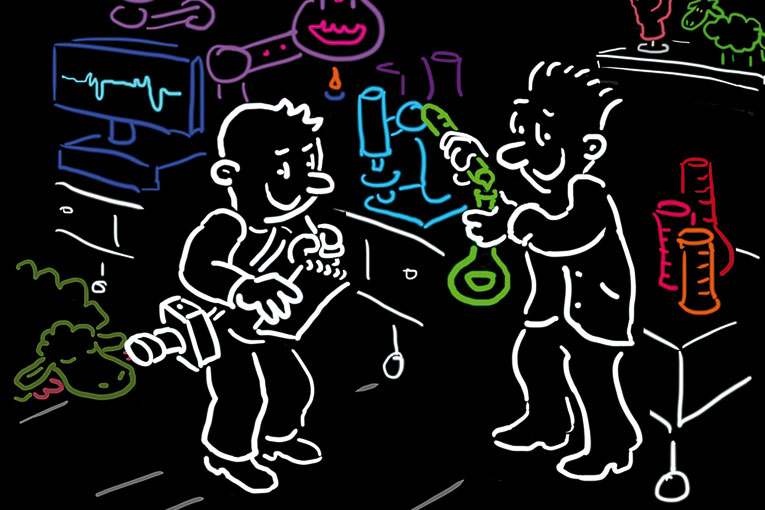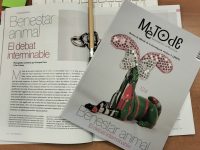
 Anna Sanchis Anna Sanchis |
||
|
During last week, the Science and the Press seminar took place in the UIMP. It was organized by Mètode and involved several specialists in scientific communication from the academic world (for instance Hans Peter Peters, Susanna Priest and Dominique Brossard) and active journalists from the main publications in Spanish area such as La Vanguardia, El Mundo, Muy Interesante, Quercus, Investigación y Ciencia, Materia, etc. The debate tried to find answers to the current crisis of journalism and, especially, of scientific press. ¿What is the future of scientific journalism? ¿Is there a place for science in general media? With the arrival of the recession, the first thing to disappear from the media was scientific and technological content. Newspapers made a great part of the staff redundant, among them almost every journalist in the science section. On the other hand, magazines with scientific content have also disappeared progressively from the newsstands (publications like NAT or Mundo Científico), and we still lack a truly plausible counterpart. E-magazine Materia is maybe the great exception: created by scientific journalists fired from Público, works hard to be profitable and make a space for itself among the news. But it is still too soon to know if they will succeed and, above all, if the journalists who create it will be able to make a living out of it. Whatever the case may be, the general impression during the seminar was uncertainty: no one knows with conviction towards where journalism is going, or what should we do with our current communicative model. ¿Should we open access to content? Luc Allemand, editor in chief in La Recherche, showed he was contrary to give away content and, moreover, he expressed his scepticism in front of new technologies. In his opinion, La Recherche has been working for more than forty years and will survive trends, obnoxious Twitter and boring Facebook. A journalist cannot do good journalism, he suggested, and be all day hooked to Twitter and blogs (in his opinion, good information will never be found in a blog). Conversely, Dominique Brossard, from the University of Wisconsin-Madison, said that looking down on new technologies is like riding a horse when you can drive a car, an absurdity that will make you fall behind and be obsolete before you can react. ¿What must we do, then? ¿What is the best strategy to avoid extinction? ¿Quality, locked information (Investigación y Ciencia, Quercus, La Recherche…) or rather absolutely free-of-charge content and an appeal to the readers’ generosity and benevolence (Materia)? It is well known that people do not want to pay for anything on the Internet and that in times of recession, finding a patron is even harder. But quality information can only be provided from a verification of the sources, from a careful and relaxed treatment of the information, and that means time and money. Journalism reminds more and more of the Red Queen paradox in Alice in Wonderland: either a general free media or a specialized paid one. Because it is not possible to go for both and survive. Martí Domínguez. Director of Mètode. Text originally published in Catalan in the Quadern section of El País. |
«When the crisis hit, the first thing to disappear from the media was scientific and technological content» |
|





